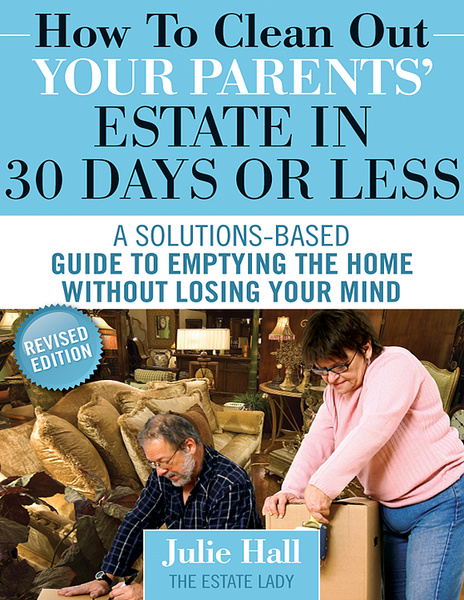Don’t take things just to take them!
Boomers, take heed. As our parents pass away, the temptation to sock away their belongings is great, but take the time to really think about what you are doing. Don’t keep it because you think your children or grandchildren might change their minds one day. Don’t get stuck paying for ludicrous storage bills that far outweigh the value of what you place inside there. Don’t fall into the trap of being a storage for your kids either. In the blink of an eye, you will be wanting to downsize; the time has come to hold yourself accountable in all of this. It’s either you who will do it or your children will do it, so why not do it for them?
TAKE only what is really special to you, because the kids will most likely not change their minds and it will be sold off for pennies on the dollar, when it falls in the hands of your children.
TAKE photographs, because they take up less space but you still have the memory of the item(s).
TAKE into consideration that if your children say “no,” they don’t want these items. They really mean “no.”
TIPS: Don’t sell, give away, or donate anything until a professional has examined it. So many boomers throw away or give away personal possessions worth a small fortune, simply because they don’t know the values. Tell everyone “no” until the appraiser has reviewed everything. The cost to pay a personal property appraiser is nothing compared to the value you could find, not to mention the peace of mind it will give you!
KEEP the following:
- Anything that can provide family history.
- Family heirlooms if they are wanted and will be cherished. Don’t force heirlooms on the children if their hearts aren’t in it.
- All items of perceived monetary value. Hire that appraiser to find out for sure!
- Family photographs
- Rare or unusual items (some antiques fall into this category). If someone has room for them and wants them, that’s fine. It’s okay to sell them if no one wants them.
- Jewelry. Have items appraised first for fair market value, not replacement value.
- Items with historic significance. You may donate if no family wants them.
- Important documents. These must be kept together until they are all sorted through by the executor.
- Collections (gold, coins, guns, stamps, etc.). Always have them evaluated by a professional. It is unusual to find appraisers for different specialty collections.
- Antiques, artwork, paintings, sculpture. These must be evaluated by a professional.
- Military items. These items are sought by collectors but may also be vital to family history.
- Safes, safety deposit boxes, and their contents. Have a key or know where keys or passwords are located.
- Anything you cannot identify. Have a professional look at it for you.
Don’t take things just to take them. Select a few sentimental items that are small enough for you to use or display in your home. Great family or marital strife can develop if you take too much. Remember, the more you take now, the more your children will have to deal with later.
©2014 The Estate Lady®
Julie Hall, The Estate Lady®, is the foremost national expert on personal property in estates, including liquidating, advising, and appraising. http://www.TheEstateLady.com She is also the Director of American Society of Estate Liquidators®, the national educational and resource organization for estate liquidation. http://www.aselonline.com.
No part of The Estate Lady® blogs, whole or partial, may be used without Julie Hall’s written consent. Email her at Julie@TheEstateLady.com




